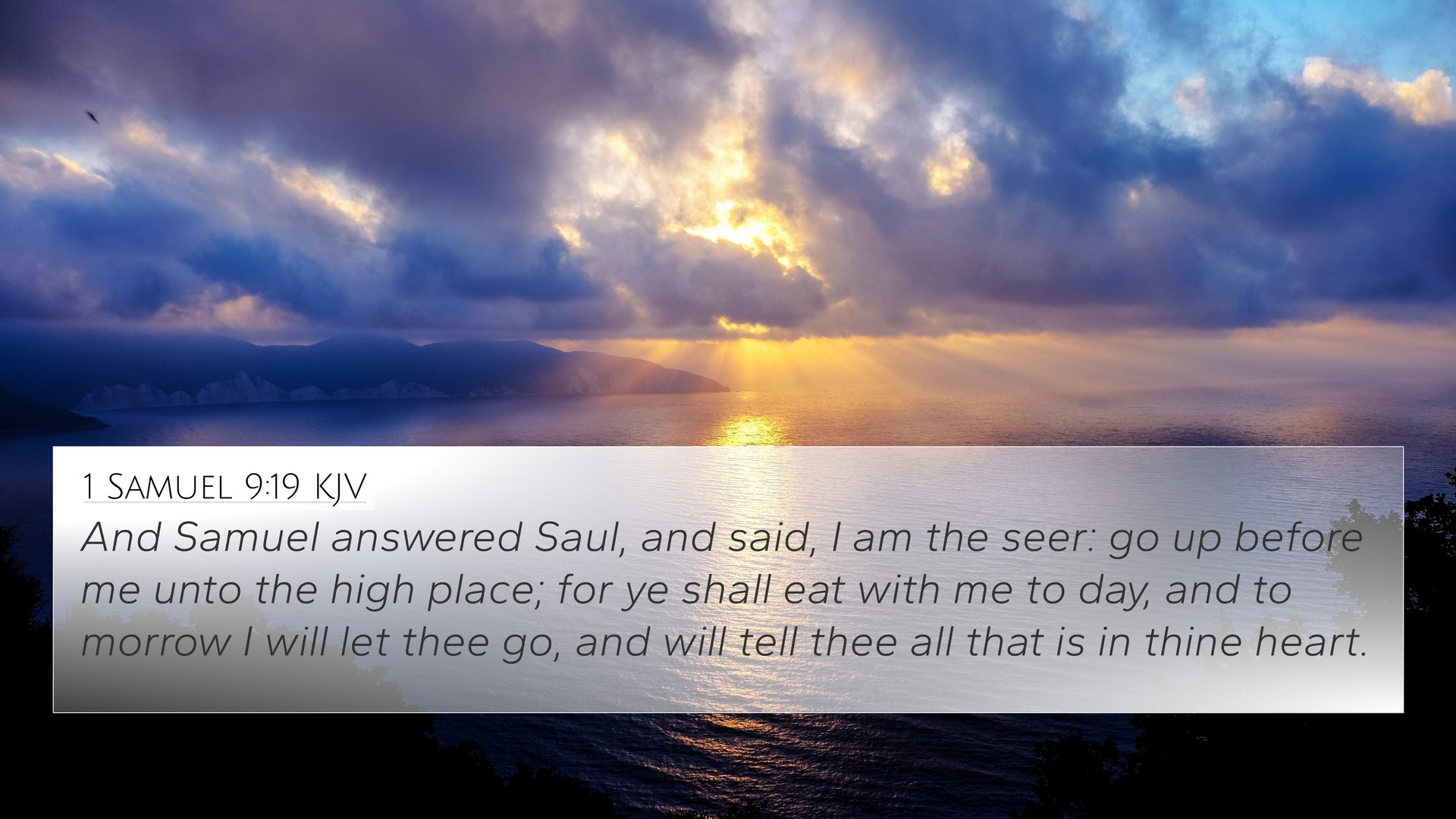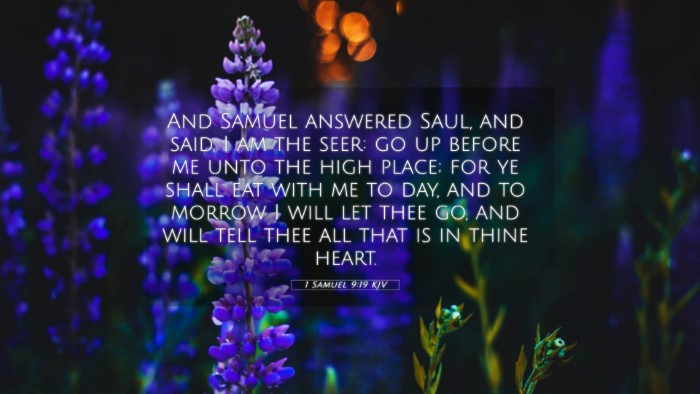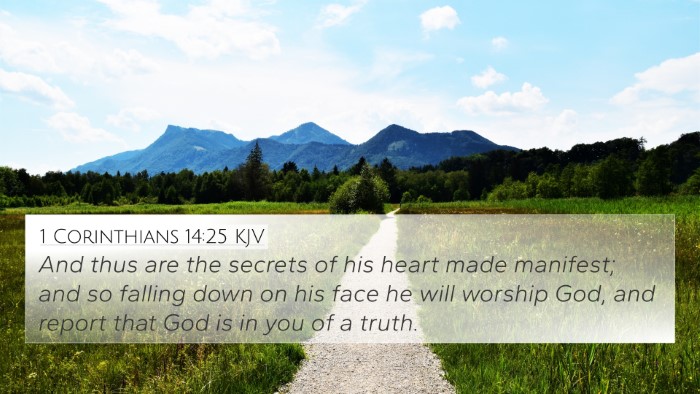Understanding 1 Samuel 9:19
Bible Verse: 1 Samuel 9:19 - "And Samuel answered Saul, 'I am the seer; go up before me to the high place; for you shall eat with me today, and in the morning I will let you go and will tell you all that is on your mind.'"
Verse Interpretation
This verse symbolizes a pivotal moment in the life of Saul, illustrating the divine selection and guidance through the prophet Samuel. Each phrase unveils profound truths about identity, purpose, and divine revelation.
Key Themes and Insights
- Divine Appointment: Samuel's role as the 'seer' signifies his responsibility to convey God's will.
- Personal Invitation: "Go up before me" indicates God's personal engagement in the affairs of men.
- Provision and Fellowship: Eating together establishes a covenantal relationship between Samuel and Saul.
- Revelation and Guidance: The promise to reveal what is on Saul's mind reinforces God’s desire to communicate with His chosen leader.
Commentary Insights
Matthew Henry: Henry emphasizes the importance of prophetic guidance in preparing the way for Israel’s monarchy through Saul. He notes that Saul's journey leads him to God's appointed means for establishing his kingship.
Albert Barnes: Barnes focuses on God’s providence, highlighting that Saul's arrival at this moment was not by chance, but a divine orchestration. The meeting underscores God’s control over all events and the importance of seeking God’s counsel.
Adam Clarke: Clarke discusses the significance of the term 'seer,' indicating the clarity with which Samuel perceives God's messages. He further illustrates the relational aspect of the prophet's role in providing food and insights to Saul.
Related Cross-References
1 Samuel 9:19 connects with several other scriptures that reflect similar themes of divine guidance, leadership, and prophecy:
- 1 Samuel 3:19-21: God’s speaking through Samuel as a prophet.
- 1 Samuel 10:1: Anointing of Saul, establishing his kingship through divine instruction.
- 2 Samuel 16:23: Ahithophel’s advice to Absalom, reflecting the role of seers in political affairs.
- Proverbs 29:18: “Where there is no vision, the people perish,” highlighting the importance of prophetic insight.
- Acts 13:21-23: New Testament reflection on the selection of Saul as king.
- 1 Kings 19:19: Elijah’s call of Elisha, paralleling prophetic duties.
- Isaiah 41:9-10: God’s assurance of guidance to His chosen ones.
Tools for Cross-Referencing
Utilizing cross-reference tools enhances the understanding of scripture. Consider the following:
- Bible Concordance: A valuable tool to find specific words and themes across scripture.
- Cross-reference Bible Study: Enables the user to see thematic connections.
- Bible Reference Resources: Facilitates deeper studies into the intercultural dialogues between different scripture parts.
- Comprehensive Bible Cross-reference Materials: Enrich personal study and sermon preparation.
Conclusion
1 Samuel 9:19 exemplifies how God directs history and individuals, reflecting His sovereignty in the establishment of Israel’s kingship through Saul. The verse sets significant stage in understanding the prophetic role and the interconnectedness of biblical narratives through cross-referencing. By linking with other verses, readers gain deeper insights into God's plan and the importance of His guidance in leadership.




